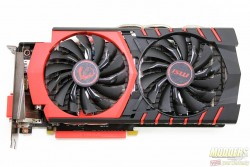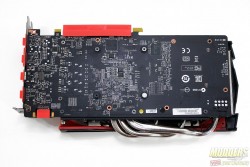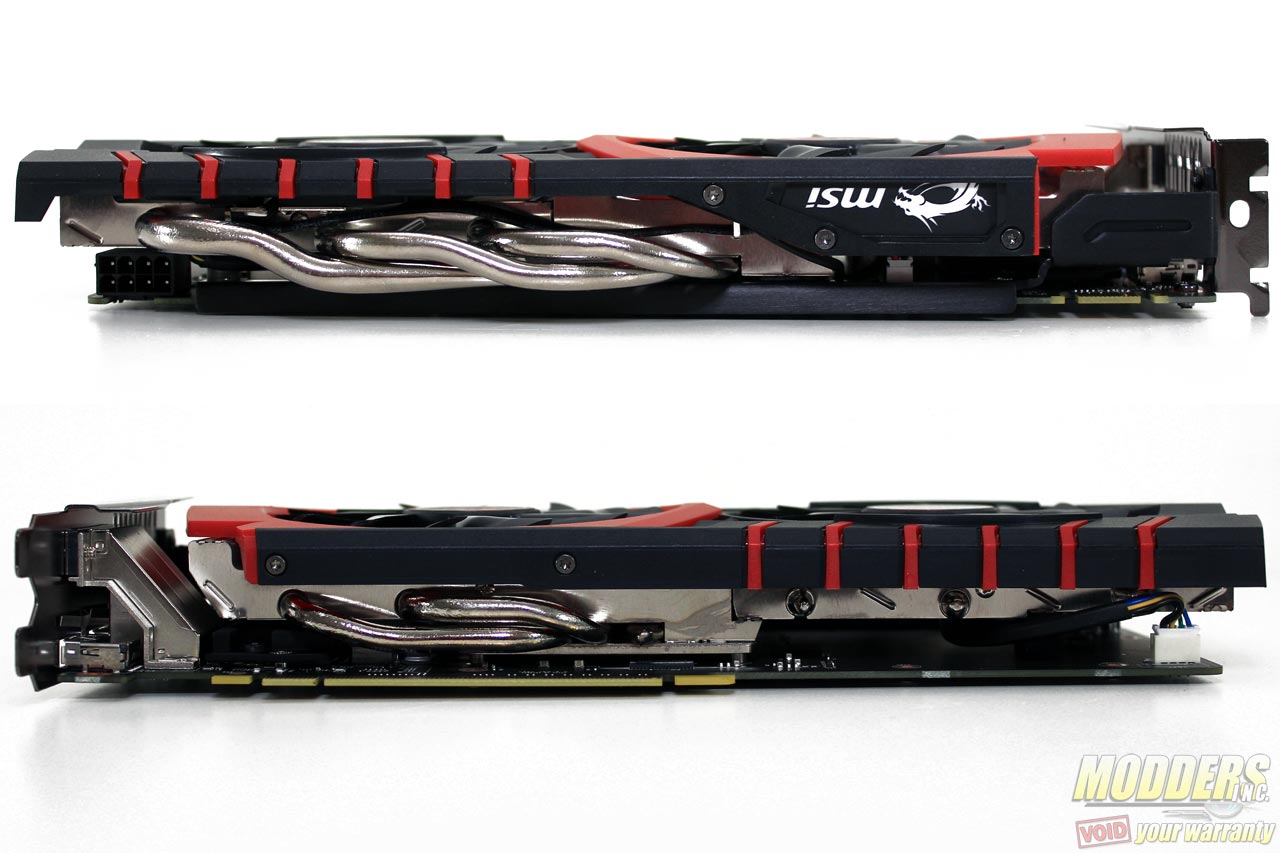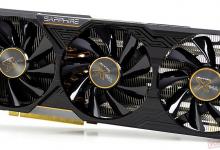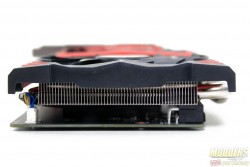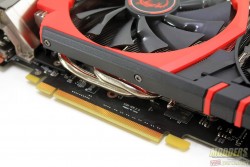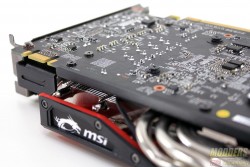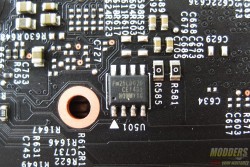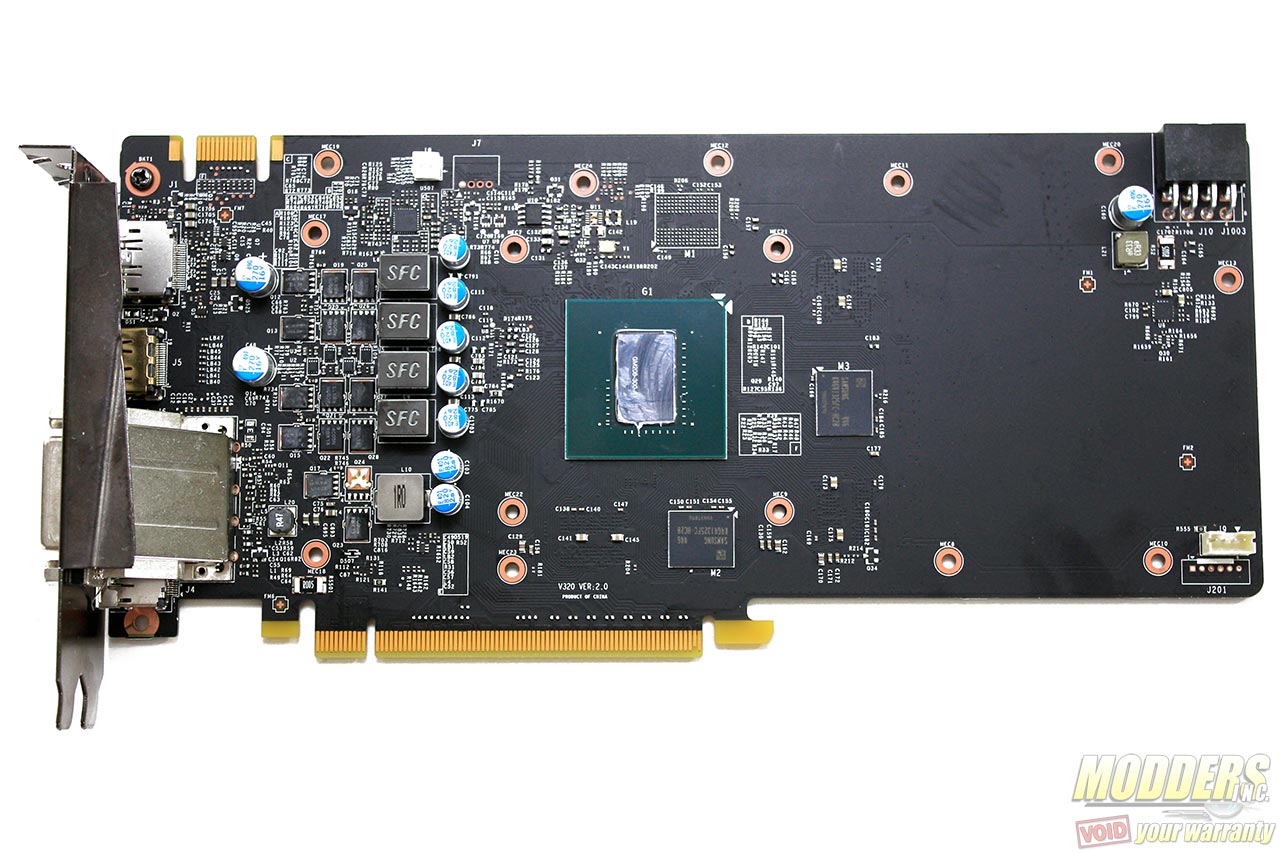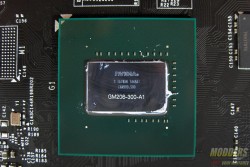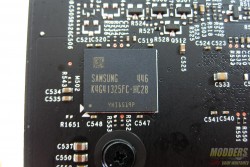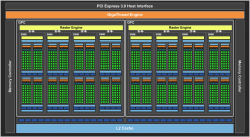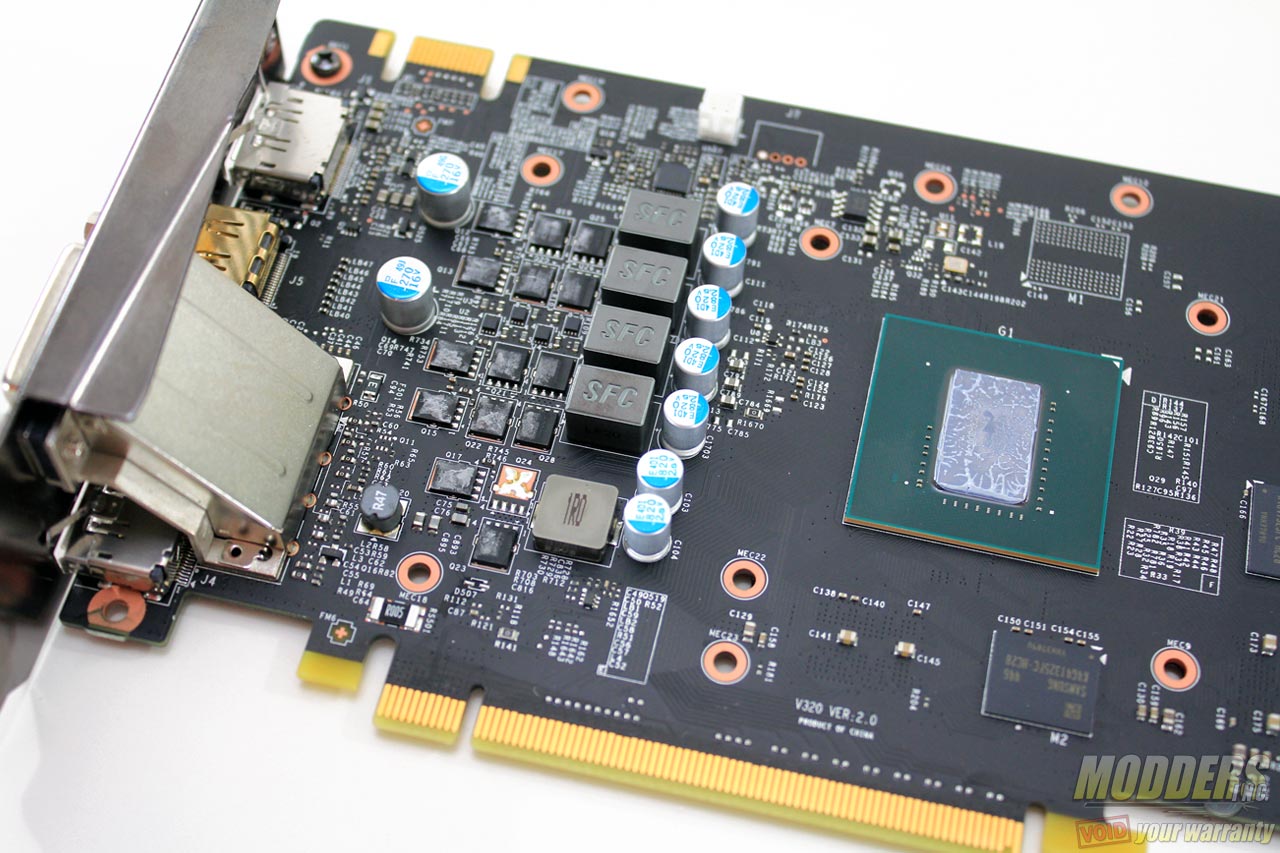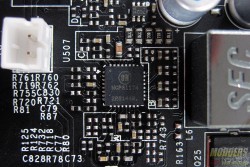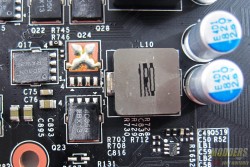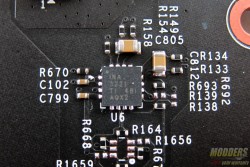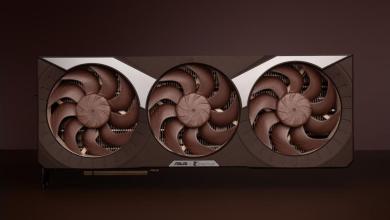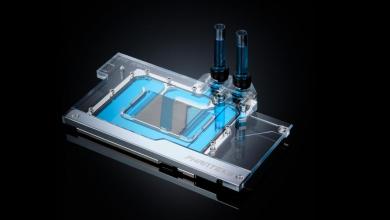MSI GTX 960 Gaming 2G Video Card Review: Aggressive yet Refined
A Closer Look at the MSI GTX 960 Gaming 2G Video Card
The length of the MSI GTX 960 Gaming 2G is just over 26.7 cm or 10.5 inches but is wider than most video cards at 13.9cm or 5.5 inches. The fan shroud follows the red and black theme, comprised of a two-piece plastic construction which is actually quite thick but still light enough. There is no blackplate so the rear PCB is exposed. The shroud does not extend all the way to the PCB area and actually sits above the heatsink and fin array so there is plenty of opening for air to pass through. The MSI GTX 960 Gaming 2G is a dual-slot solution and total height is 3.6cm or 1.42 inches.
The rear has the standard NVIDIA reference GTX 960 display outputs including a DVI-I port, an HDMI 2.0 port and three DisplayPort 1.2 outputs. The HDMI connector housing is gold plated and the DVI connector is shielded. The front is almost completely open with the exception of the shroud overhanging at the top part of the exposed fin array.
The MSI GTX 960 Gaming 2G uses a single 8-pin PCI-E power connector which allows it to draw an additional 150W on top of what is provided by the PCI-E 3.0 slot compared to the reference GTX 960 which uses a single 6-pin power connector which can provide an additional 75W. This 8-pin power connector faces the side and has a latch facing upward to prevent clearance issues with the heatpipe below. One SLI connector is available for up to dual-SLI configuration.
The side near the SLI connector is where the LED is located. Users can control this light via NVIDIA GeForce Experience or via MSI’s Gaming App software. A video below shows the various lighting options available out of the box. There is also a “random” option which combines all the options in a randomized sequence.
The rear PCB has half of the memory mounted on it, a pair of Anpec APL3516A protection switches and a Chingistek Pm25LD010 1-Mbit flash memory for the BIOS located near one of the unused mounting holes to the side close to the protruding heatpipes.
On the other side with the Twin Frozr V cooling system removed, the MSI GTX 960 Gaming 2G VRM design can now be seen. It is fairly straightforward, positioned between the GPU and the rear connectors instead of between the GPU and the power connectors (where this PCB has a lot of blank space instead). The memory modules used are Samsung K4G41325FC-HC28, specified to run at 1750MHz (7000MHz effective). Two are on the top side of the PCB and two are at the back. Only the two at the top side are actively cooled while the back modules are not. These memory chips are not in physical contact with the heatsink.
Underneath the hood, the GTX 960 has an NVIDIA GM206 “Maxwell” GPU, the direct descendant of the GK106. In comparison, the GM206 only has two Graphics Processing Clusters compared to the GK106’s three but has eight Kepler Streaming Multiprocessors (SMM) versus five. Each SMM unit in the GM206 has its own dedicated 96KB shared memory compared to Kepler’s 64KB. There are 1024 CUDA cores in total with 64 texture units, 32 ROPs on a 128-bit memory interface. Normally that 128-bit path sounds like a performance bottleneck but NVIDIA has revamped their delta-color compression engine in Maxwell that when coupled with caching improvements in the architecture, results in improved effective bandwidth compared to the GK106.
The reference NVIDIA GTX 960 has a 3+1 phase power design but MSI has customized the VRM on their GTX 960 Gaming to be a 4+1 phase design. An On-Semiconductor NCP81174 is used as the controller, configured to its full 4-phase function with three MOSFETs-per-phase (a pair of On-Semi NTMFS4C05N with a NTMFS4C10N) with On-Semiconductor NCP81161 drivers. Output filtering uses four 0.20uH “Super-Ferrite” chokes and 5x 820uF solid capacitors. The memory power has an On-Semi NTMFS4C05N with an On-Semi NTMFS4C10N, a 1.0uH low-profile laptop choke and a pair of 820uF solid capacitors. A Texas Instruments INA3221 on the top edge is a 3-channel high-current bus and voltage monitor involved in power distribution.
